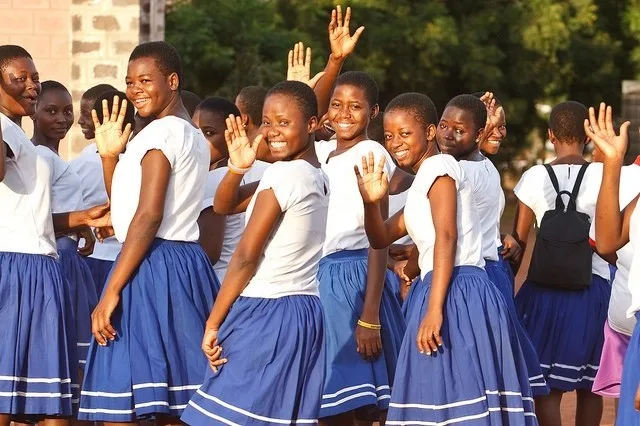
The Ghana Education Service (GES) has forbidden skin bleaching among students across all Second Cycle institutions nationwide.
The directive is one of the provisions within the harmonized Code of Conduct approved by Ghana Education Service Council for students in the pre-tertiary levels.
The section of the code of conduct obtained by Starr News titled “Improper Dressing” explicitly states that
“Bleaching of the skin by a student shall not be allowed”.
Beyond the ban on skin bleaching, the regulations cover a range of aspects related to student appearance and conduct.
The Code of Conduct goes on to emphasize the necessity for students to dress neatly, adhering to prescribed attire and footwear consistently.
Accessories such as chains, bangles, caps, braces, and even spectacles are subject to specific rules.
Spectacles are allowed only with a valid medical prescription, and alterations to school uniforms or dress are strictly prohibited, constituting an offense.
“Students shall not wear chains, bangles, caps, braces. Wearing of spectacles shall be with medical presentation.
No alterations to school uniforms or dress shall be allowed. Unprescribed attire found in possession of a student is an offence attire is an offence.Using of unprescribed attire by a student is an offence”.
The guidelines extend to personal grooming, underscoring the importance of maintaining a decent haircut as defined by school authorities.
Clean, neat, and modest hair is encouraged, with an emphasis on avoiding extreme styles and colors.
For male students, a neatly styled haircut and a clean-shaven beard are outlined.
“Students should have a decent haircut as prescribed by the school authorities. Hair should be clean, neat, modest, and avoid extremes in styles and colour. Men’s hair should be neatly struck and beard clean shaven”. The code of conduct states.
The prescribed guidelines for sanction of the above offences include confiscation of the bleaching cream and other items not prescribed, face disciplinary committee and sign bond.
Also sanction for the offence of improper dressing include caution and counselling, or manual work, demotion for prefects, two weeks internal suspension, shaving of beard or sideburns under supervision of housemaster.
The GES’s harmonized Code of Conduct was approved by Ghana Education Service Council to serve as a guide and reference materials, so as to promote and maintain discipline at the pre-tertiary level of education, at the same time strictly conforming to the general rules and directives.
It reflects a broader commitment to instilling discipline and uniformity in the educational environment,stressing on the role of appropriate appearance and grooming standards in fostering a conducive learning atmosphere.
Source: Ghana/Starrfm.com.gh/103.5FM/Kojo Ansah



